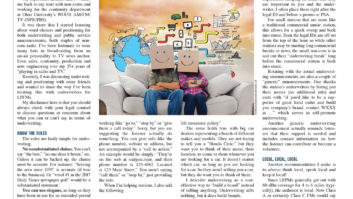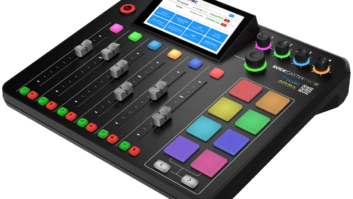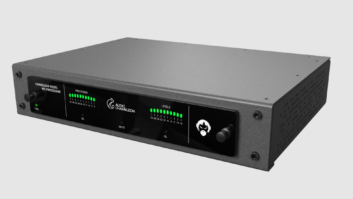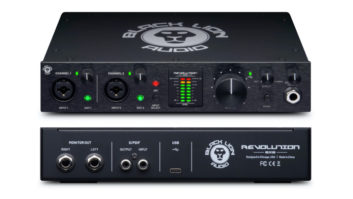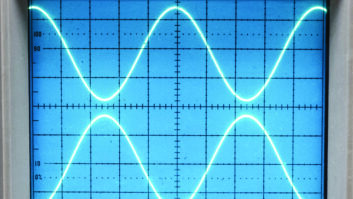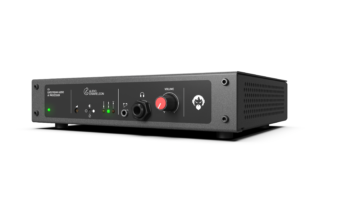Another sampling of recent letters to the editor. Send your letters Email to [email protected].
Pirate Hunting Looks Good on Paper
Regarding the FCC sending letters to property owners about pirate radio operations:
Leave it to Congress to pass yet another spineless, barely enforceable act, the PIRATE Act of 2020, bringing back shades of the worthless 1986 Electronic Communications Privacy Act.
While I can see where pirate broadcasting can certainly be a problem, in all honesty the majority of listeners love listening to pirates. Radio magazines even run columns devoted to it.
While I don’t necessarily disagree with fine-levying, such levies are worthless if the FCC is powerless (or fund-less) to collect. Quoting your article on pirates: “To date … no forfeitures have been assessed under the act.”
In an earlier letter I pointed out that the FCC’s 2016 $25,000 forfeiture order against an amateur radio operator has yet to be collected. His callsign was recently appropriated by a friend of his, and the obscenity, sexist and racist jamming of the WARFA net on 3.908 has now doubled, with current and former owners of the callsign tag-teaming to jam net operations nearly every Sunday, Tuesday and Thursday. Over 100 complaints have been filed through the FCC’s website, only to be given a case number while “the band plays on.”
This individual has loudly proclaimed on 3.908 that WBJ means “World’s Best Jammer” and that the FCC will never collect the $25,000. He even plays a song on top of the net showcasing the “virtues” of being a jammer. He been at it for over 10 years. Isn’t it time to bring in the local sheriff or federal marshals and shut this clown down?
How can we believe the FCC will be capable of enforcing any $100,000 to $2 million judgements when they can’t even collect a six-year-old $25,000 forfeiture? I’m all for the FCC doing their enforcement job. My question is, when will that be?
– Ron Fitch, WQ6X President, Amateur Radio Club of Alameda
Software Has Its Limits
Lou Sabatini, Scott Todd and Archie Stulc were “spot on” in their comments about maintaining consistent audio levels, especially when dealing with digital technology. And as always I appreciate Mark Persons’ contributions and experience.
Yes, we do have means to make small corrections “ex post facto,” but even the best software has its limits.
My introduction to digital audio recording was at a small TV station nearly 30 years ago. As an “experienced” engineer, I wondered why this device’s indicator was several dB lower than the mixer’s VU meter, so I “corrected” its gain. Big mistake!
That was my first (and only) lesson on allowing sufficient “headroom” for peaks that the board’s analog meters couldn’t display. My church’s nascent “media ministry” started with cassettes and VHS, but I soon discovered the tremendous improvement in quality when I started mastering the audio on a (now long-obsolete) Sony MiniDisc recorder (properly adjusted, of course).
Now I use rack-mounted recorders with SDHC memory-cards, and Audacity on my PC to produce some really good CDs or MP3 files for distribution.
The only thing that’s still somewhat out of my control in my churches is the participants’ mic techniques and vocal styles. I’ve had folks who shout one minute, whisper the next; walk away from their mic; neglect to turn their wireless mic on; or somehow twist its lapel clip so their mic points anywhere but up.
While Audacity has tools to fix some problems, it still can’t make filet mignon out of hamburger.
Michael Shovan, WB2KHE, fd&t technical services
[Check Out More Letters at Radio World’s Reader’s Forum Section]





